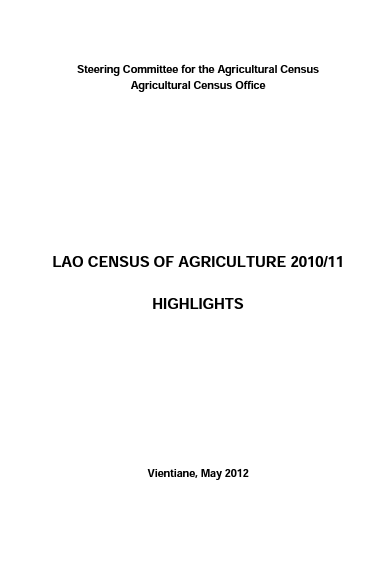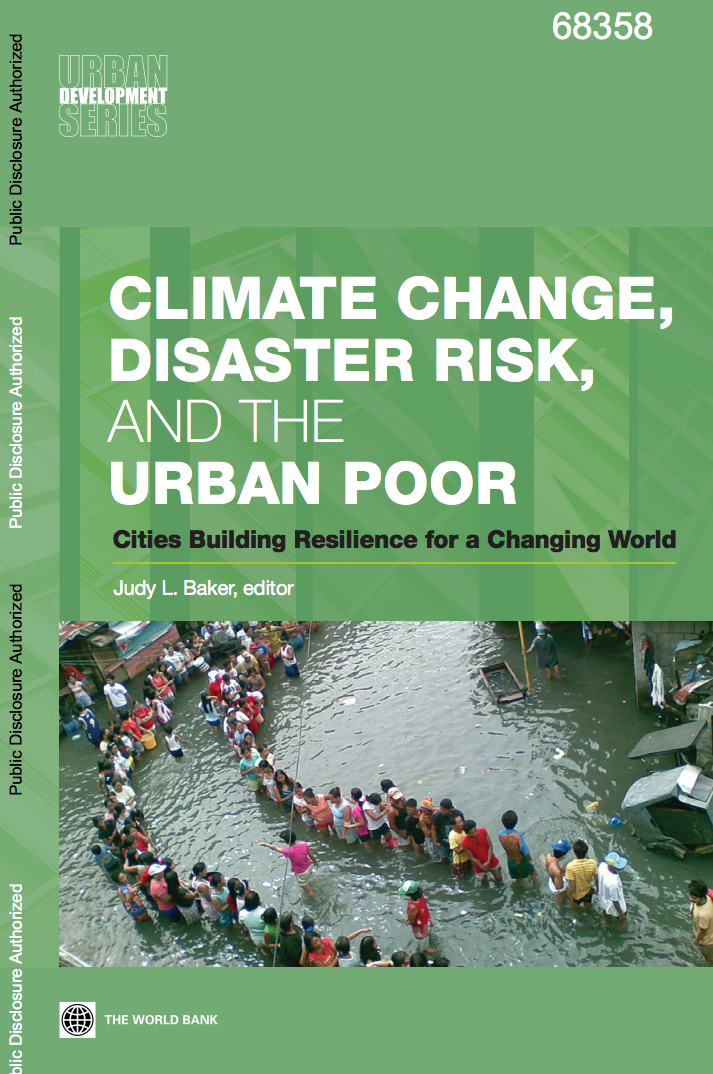Steering Committee for the Agricultural Census. 2011. Agricultural Census Laos
This report presents results of the Lao Census of Agriculture 2010/11. It highlights the major findings of the census, featuring commentary and graphical presentations, as well as some summary tables. Results are shown for each province. The report is available in Lao and English as separate documents. The Lao Census of Agriculture 2010/11 was the second agricultural census undertaken in Lao PDR; the first was conducted in 1998/99. Since the first census, there have been significant changes in the agricultural sector and these changes needed to be captured in another census.



